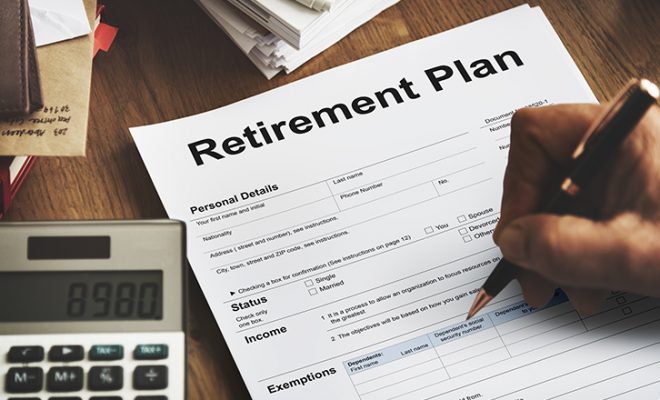8 Reasons to Regularly Monitor Your Retirement Plan

Most financial journals and experts talk about the importance of having a retirement plan. It is common knowledge that retirement planning should be a priority from the very beginning of your career. With increasing awareness and rising costs of living, investors too are more conscious of devising plans and strategies that can last them in the long-term. But one sphere where many people still fall behind is regular monitoring and re-evaluating. The lack of time, interest, and sometimes information can cause people to procrastinate or entirely eliminate the need for reassessing plans from time to time. However, in order to ensure efficacy, this remains a vital thing to do.
Here are 8 reasons to regularly monitor your retirement plan:
- You can protect yourself from inflation
The time when you begin saving and the time when you use your funds will drastically differ. Costs will considerably rise, and so will the standard of living. This brings the need to regularly revise your retirement plan. Keeping in mind the current and past trends, you may have to tweak your contributions to retirement accounts such as the 401 (k) account or the IRA (individual retirement account). This can only be done if you keep a close watch on your funds, your changing needs, and monthly budgets. - You can plan your career better
The ultimate goal of working, earning, and saving is to enjoy a good retirement life. But by monitoring your retirement plan, you can be in touch with your present goals too. You will likely face many life-changing situations in your life. The decision to quit a job, start afresh in a new industry, set up your own business, or move to a new state or country, etc. can also be better planned as long as you are well aware of where your retirement strategies are headed. If your future savings are growing at a slow pace, it may be hard for you to take risks in your career. However, if your savings are steady and able to meet your expectations, you can consider taking a new road. - Your life events can hamper your savings
Getting married, divorced, or widowed can affect your overall financial standing and plans. The same happens when you have children. The legal and financial implications of such life events ultimately affect your long-term goals. As a single person, your goal can be to save for one individual. However, as a married person with children, you can be responsible for your spouse, children, and grandchildren, etc. Your retirement plan will need adjustments depending on the people in your life. This is why experts recommend incorporating these relationship changes into your financial planning as and when they occur. - You can avoid last-minute surprises
Inadequate savings cause trouble in old age. If your savings fall short, you may have to depend on your children or live on a very strict budget. These eventualities can be avoided if you keep track of your retirement plan. Timely evaluations can ensure that your savings are sufficient and in alignment with your routine requirements and medical conditions. This eliminates the possibility of financial hardships at a later stage in life. - You can plan for early retirement
With time, the concept of retirement has evolved. The phase was earlier associated with old age, but many people are now opting for early retirement under the FIRE (financial independence, retire early) movement. However, while retiring at an early age sounds appealing to many people, it is also a very challenging goal to achieve. The planning involved in retiring in your 40s or even 50s can be extremely intricate and require constant time and attention. If you believe in the FIRE movement and want to retire early, regular monitoring of your retirement plans and being in touch with newer and more effective ways to invest, save, and budget can be the recommended course of action. - You can make better investment decisions
Many factors govern your investment choices. Starting from your income, risk appetite, knowledge of the market, personal commitments, and debt, etc. can all influence your investment decisions. These factors are also constantly changing on the basis of your age, family composition, and general temperament. This is why financial advisors often suggest investors review their plans from time to time. This can help you gauge the areas of your plan that need to be updated as per your current likes and requirements. You can also shift between passive and aggressive investments or increase or decrease your savings contributions depending on what your goals are at a given point of time. - You can lower your taxes
The tax bracket is decided based on your gross earnings from your job, business, or other similar income sources. The same applies to your income post-retirement. While planning for your future, it helps to understand the value of your post-retirement income and ensure that your savings and investment returns do not lose their worth to taxes. It is beneficial to constantly analyze your retirement accounts in relation to your other assets and investments to make sure that you are able to make the most of them. - You will know where you stand
As per a survey conducted by GoBankingRates.com, only 22% of people in their 50s were saving appropriately for their retirement. Having inadequate savings for retirement is not always the worst-case scenario of poor planning. Sometimes, people end up saving more than what they need and compromise with their lifestyle when they are young. The scale can go either way. Therefore, it is necessary to revisit, reframe, and reassess your retirement plan periodically to know where you stand as far as your savings are concerned. This will assure a comfortable life, both pre and post-retirement.
To sum it up
Monitoring your retirement plans can be one of the most effective and useful strategies to make sure that things end up the way you hoped for them to be. It takes little time and effort and eliminates the chances of last-minute hassles. While you can monitor your plans yourself, it can also help to get a professional opinion from Financial Advisors to ensure smooth sailing.









